In a significant move towards federal marijuana legalization, Democratic Senator John Hickenlooper (D-CO) has refiled a groundbreaking bill known as the Preparing Regulators Effectively for a Post-Prohibition Adult-Use Regulated Environment Act (PREPARE) Act.
The legislation, introduced recently in the Senate, aims to establish a commission responsible for formulating a comprehensive regulatory framework for cannabis, similar to the existing system in place for alcohol. The bill seeks to address key issues surrounding cannabis regulation, including safety, criminalization, banking barriers, and coexistence with the hemp industry. Let's delve into the details of this important bill and its potential impact on the cannabis industry and the broader society.
The PREPARE Act - A Path to Federal Cannabis Regulation
The core objective of the PREPARE Act is to create a "Commission on the Federal Regulation of Cannabis" within 30 days of the bill's enactment. This commission will be tasked with studying the current federal and state regulatory models for alcohol and using the insights gained to recommend appropriate marijuana regulations. Among the primary considerations, the commission's report must analyze the impact of marijuana criminalization, especially on minority, low-income, and veteran communities.
Furthermore, the commission will explore the lack of consistent regulations pertaining to cannabis product safety, use, labeling requirements, and youth safety measures. It will also delve into the complexities of cannabis crop production, sale, and trade both within states, across state lines, and internationally.
Additionally, the commission will study how to overcome existing barriers to cannabis-related banking and research and ensure the harmonious coexistence of the hemp and cannabis industries.
The PREPARE Act mandates the commission to submit its comprehensive report to Congress within 12 months, outlining its findings and recommendations, thereby paving the way for a well-informed discussion on federal cannabis regulation.
Key Differences and Enhancements from Previous Versions
The new version of the bill introduces several modifications and enhancements to its House counterpart. One notable difference is the inclusion of measures to protect youth and reduce potential harms to youth as part of the directive to assess safety standards in marijuana regulations. This ensures that the bill addresses concerns about underage cannabis consumption.
Additionally, the Senate bill requires the House minority leader to appoint a commission member with expertise in the history of cannabis criminalization and its impact on various communities, particularly minorities, medical patients, and veterans. This move emphasizes the importance of recognizing the historical injustices related to cannabis and working towards rectifying them.
Moreover, the Senate version expands the commission's membership to include one state and one local marijuana regulator. This inclusion is aimed at ensuring a comprehensive representation of cannabis stakeholders and their perspectives, thus fostering inclusivity in the regulatory process.
Supporters and the Road Ahead
The PREPARE Act has garnered significant support from various organizations in the cannabis industry. Key supporters include the Veterans Cannabis Coalition, NORML, US Cannabis Council, Minorities for Medical Marijuana, National Cannabis Industry Association (NCIA), Coalition for Cannabis Policy, Education, and Regulation (CPEAR), among others. This broad-based support reflects the growing momentum towards federal marijuana legalization and the importance of comprehensive and informed regulatory measures.
It is also worth noting that the current U.S. Attorney General, Merrick Garland, has expressed his stance against federal intervention in states that have legalized cannabis. He believes that such interventions would not be an appropriate use of the Justice Department's resources. This aligns with the general sentiment among the supporters of cannabis reform, who argue for a more lenient approach to states with legalized cannabis.
Sentator Hickenlooper’s Record on Cannabis
The Colorado Democrat served as governor when the state rolled out its recreational marijuana market in 2014 and believes Colorado’s is the model for a safe, well-regulated marijuana market according to a press release.
He is seeking to build on that success with federal regulation that reflects a pragmatic and evidence-based approach to cannabis policy reform.
However, despite the bill's potential impact, its ultimate fate remains uncertain. It will undergo scrutiny and debate in Congress, with its proponents championing the need for federal regulation and its detractors voicing concerns about federal interference in states' rights, among other “Reefer Madness” propaganda that refuses to die.
Specifically, the bill would “replicate” the state-level task force Hickenlooper convened after Colorado voters approved recreational marijuana legalization in 2012, with a broad array of stakeholders, to make sure all concerns are addressed.
The bill's emphasis on addressing historical injustices, youth protection, and the coexistence of cannabis and hemp industries demonstrates a commitment to fostering a responsible and equitable cannabis market.
As the PREPARE Act navigates the legislative process, it underscores the ongoing and challenging efforts to create a well-regulated cannabis market that prioritizes public safety, social equity, and economic opportunities.
The bill serves as a beacon of hope for the cannabis industry, offering the promise of a brighter and more inclusive future. As stakeholders await the commission's report and Congress's deliberations, they remain hopeful that a cohesive and progressive federal cannabis policy will soon become a reality.
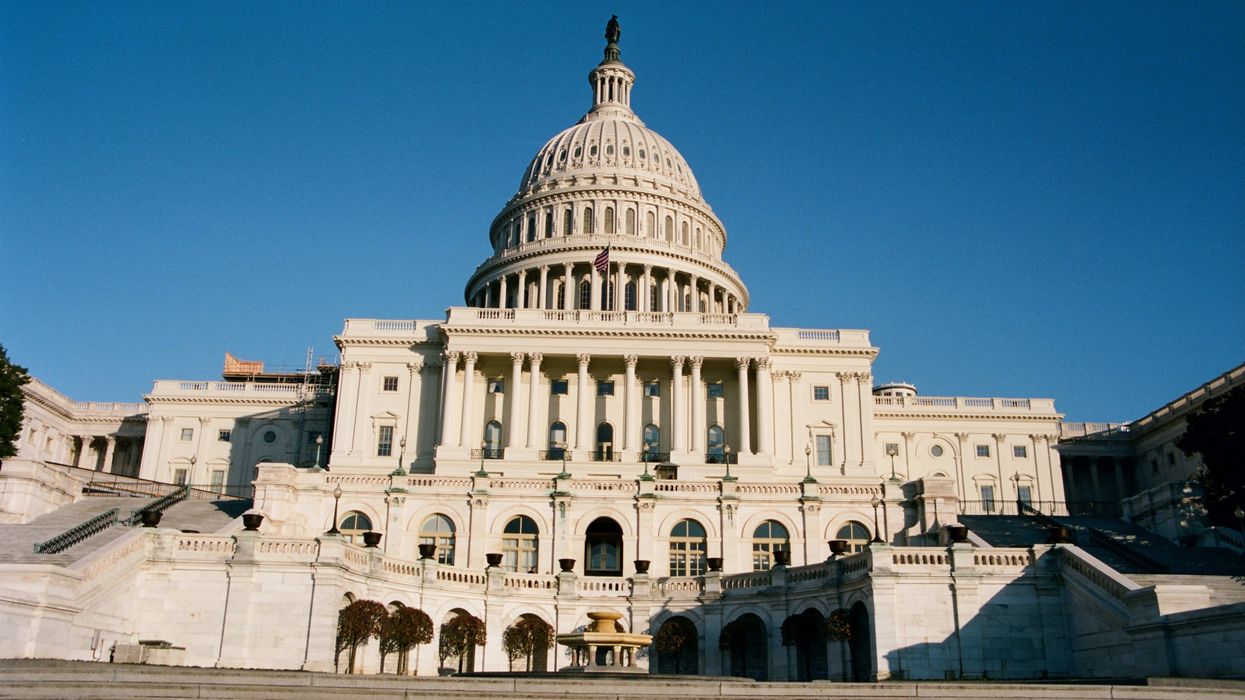













 High-THC Weed Explored - The Bluntness Photo by
High-THC Weed Explored - The Bluntness Photo by  High-THC Weed Explored - The Bluntness Photo by
High-THC Weed Explored - The Bluntness Photo by  High-THC Weed Explored - The Bluntness Photo by Maria Fernanda Pissioli on Unsplash
High-THC Weed Explored - The Bluntness Photo by Maria Fernanda Pissioli on Unsplash 
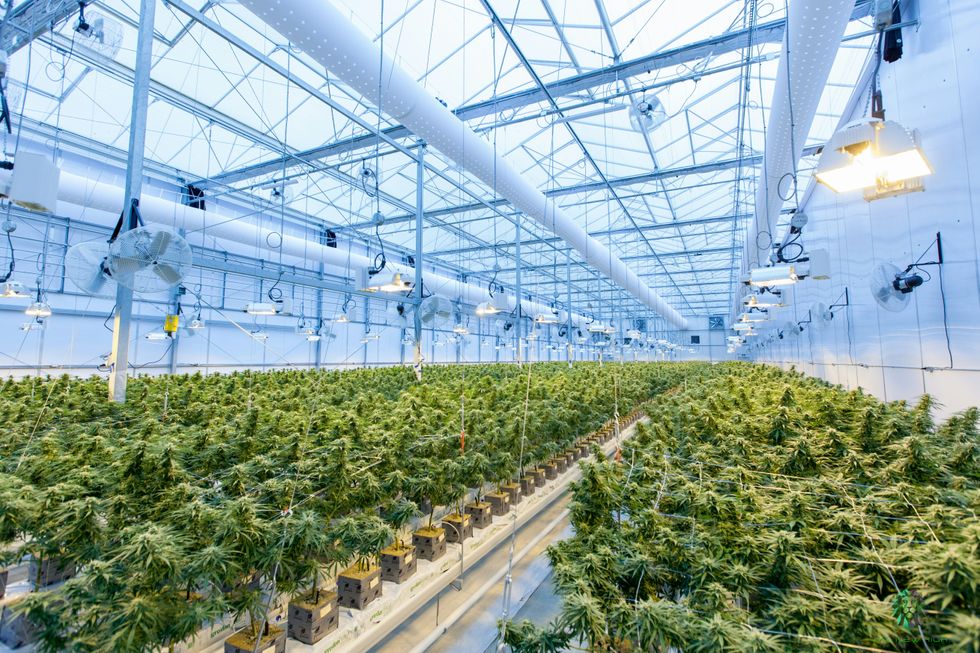 When it comes to pricing, cultivation methods matter - The Bluntness
Photo by
When it comes to pricing, cultivation methods matter - The Bluntness
Photo by 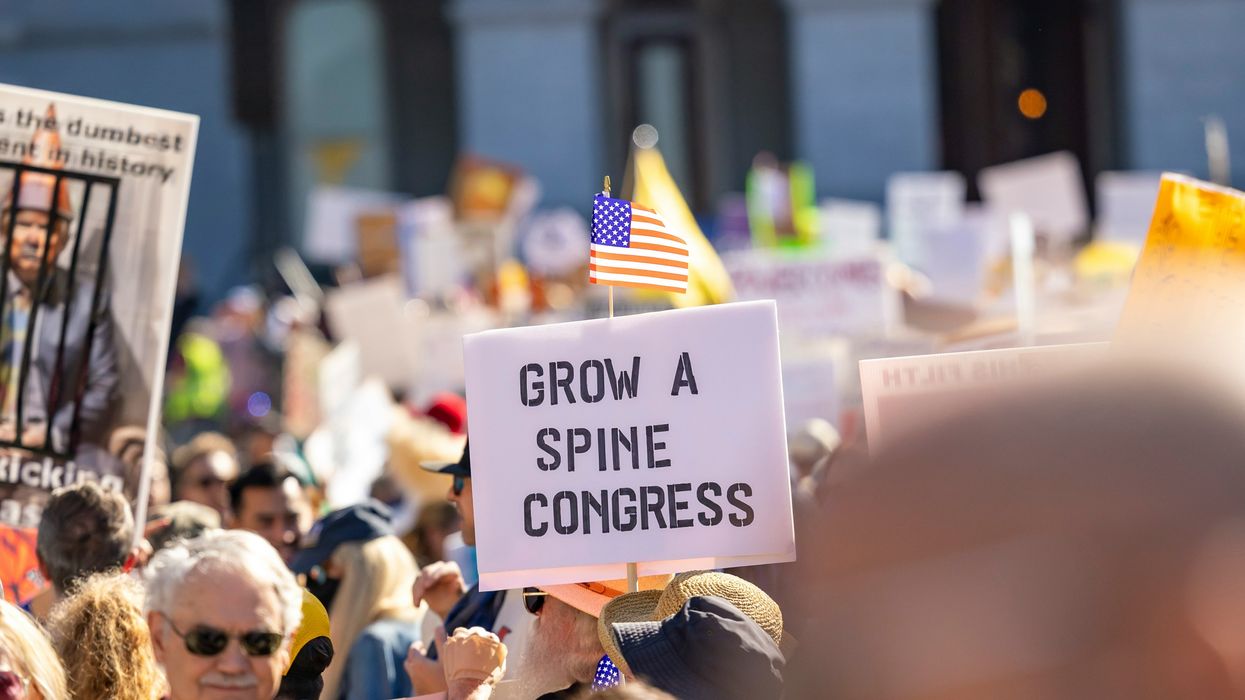
 The Proposed Hemp Ban That Would Destroy a $28 Billion Success Story - The Bluntness Photo by
The Proposed Hemp Ban That Would Destroy a $28 Billion Success Story - The Bluntness Photo by 
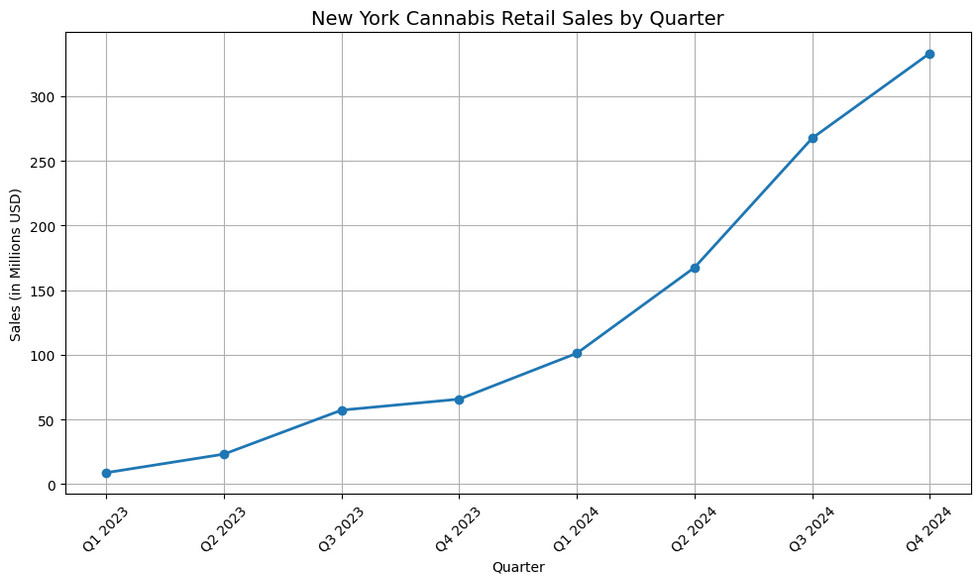 New York Cannabis Retail Sales by Quarter - 2024 - The Bluntness
New York Cannabis Retail Sales by Quarter - 2024 - The Bluntness 2024 New York Market Share by % of Sales - The BluntnessThe Bluntness
2024 New York Market Share by % of Sales - The BluntnessThe Bluntness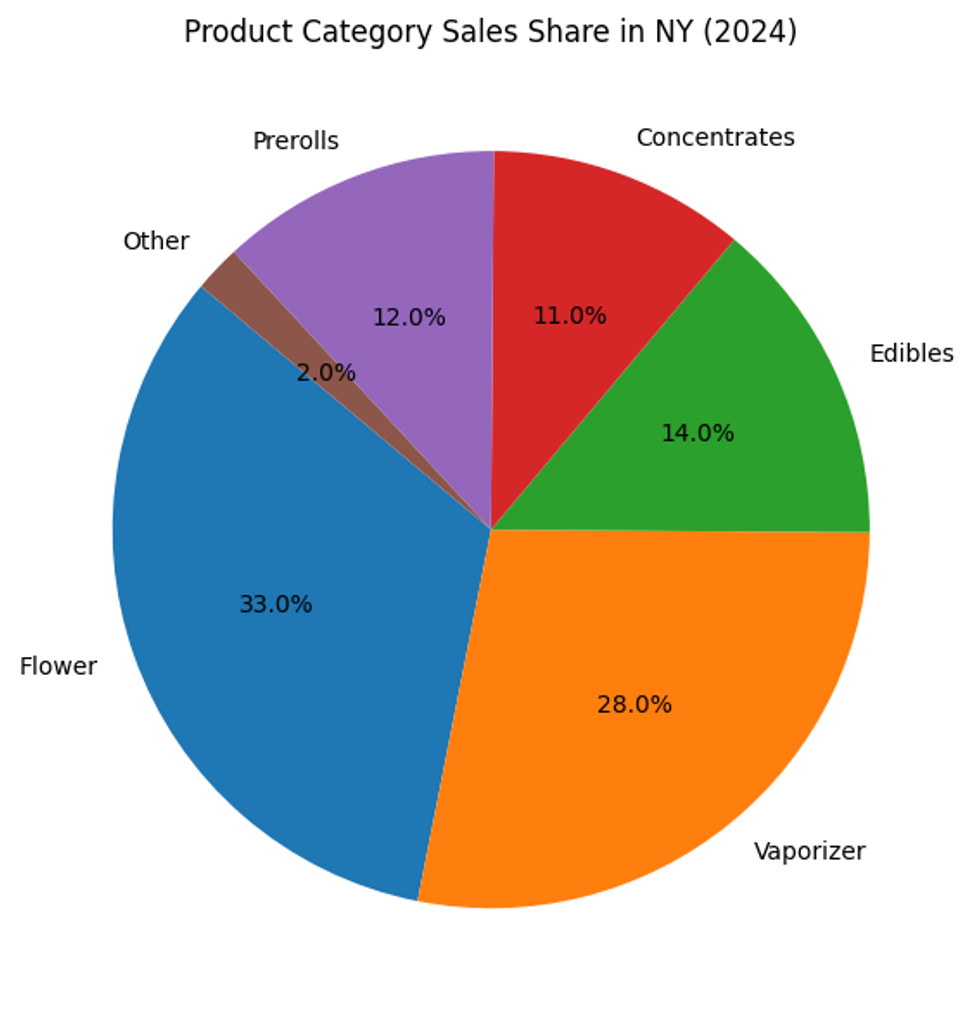 Share of market by product category according to 2024 OCM Report - The Bluntness
Share of market by product category according to 2024 OCM Report - The Bluntness